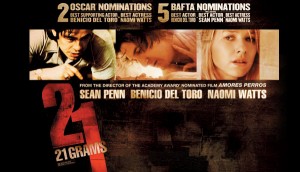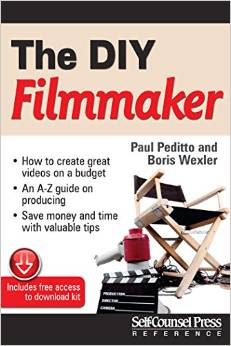We have met the enemy, and we are them.
Don’t ever categorize people–it’s a no-win landscape of ignorance. Orson Wells in Lady From Shanghai said, “it’s a bright, guilty world.”– I hear that as I type on in this perpetual 4 degree Chicago February. My stance on screenwriting consultants has been a tough one to rationalize since day one at Script Gods Must Die. I assure you I meant to put no whammy on Syd Field’s head. But, if not Syd, who are the Script Gods I wanted crushed out?
They are the gurus. The pompous, all-knowing self-anointed experts with fabulous websites and zero IMDB cred. They are Hollywood finochios with a gift of gab or pen who can manipulate the neophyte and newbie screenwriter for their own financial gain. They who promise mucho, and deliver zero.
Script Magazine seemed to be the place where they hung out. But a funny thing happened on the way to the Forum– your Humble Narrator started working there. Here’s what I saw: Sure, some overplay their hands, in it for the almighty $$$. But the revelation is this… once I actually took the time to READ the articles and blog posts that have been accumulated by my editor, Jeanne Bowerman–I saw that a lot of her 60+ contributors are teachers like myself. They actually care. Several are flat-out far better writers than I’ll ever be. Sure, there are ruthless self-promoters, but that one-size-fits-all crap had to go.
Not all screenwriting consultants are scumbags. Imagine the notion!
The folks at Script Magazine don’t need this plug. They’ve got 60 or 70K monthly visitors to their website. You, Good Reader, and the rest of my noble band here at Script Gods, number considerably less. Still, I want to direct you toward some of the excellence that is to be found at Script Magazine.
So today we’ll start a new series based on writings there. Maybe something will resonate for you. Vamos!
- HOW I WROTE 21 GRAMS
Seriously? You got Guillermo Arriaga to write an epic piece about how he wrote 21 Grams? That’s a COUP, capital everything. This, the same guy who wrote Amores Perros and Babel, two other favs of mine. This guy not only strikes savage emotional chords, he also produces some of the most intricate non-linear structure you’ll ever see.
Here’s a taste: “The next step was to build the structure carefully, trying to have large narrative ellipses, but with an emotional continuum. So, in order to achieve that, I needed to create a balance within the scenes, a kind of narrative yin yang. I combined passive scenes with active ones; scenes that posed questions with scenes that answered them. Sometimes in one scene I presented the facts in a certain way, and then, in another scene, I changed those facts completely. I was looking for a way to make the audience be much more participative—to have a constant dialogue with the film, to create and recreate the story. There were themes that could improve this involvement: love, death, life, hate, revenge, forgiveness. So I tried to use scenes with contrasting emotional themes; for example, scenes of love and then scenes of revenge.”
This is the carpenter you want to study when building your own house. Take the time, check it out.
- YES, YOU TRULY SUCK
Here’s another guy with an IMDB profile–to the tune of three major Studio released movies (Die Hard 2, Bad Boys, Hostage). Sure, I’d take Arriaga’s poetry over Richardson’s thriller explosions, Die Hard 2 ain’t Shakespeare, but it’s more than solid for the genre, even inspired. I like the guy’s voice. He’s been in the room. And he makes me laugh, like in this article, where he gives us the “behind the lines” POV on how agents and movie executives actually read scripts:
“How do you get through all those scripts in just a coupla days?” I innocently asked a development pal, whose backpack was so weighed down with his weekend reading that I worried it would permanently injure his already out-of-kilter back.
“Easy. Read the first ten pages,” said an agent friend. “Then the last five. If those are any good, I’ll double back and maybe read the whole thing. Otherwise, I know it’s crap.”
A valuable look from a guy who was on the inside of the biz- right here.
- GETTING PRESS FOR A WEB SERIES
For those of us without agents or managers, looking for a way INTO the room, we might be looking into shooting a web series. I’ll be posting on the web series Devolve that we wrapped production on in late January shortly. Meanwhile, this excellent article by Rebecca Norris recently appeared on Script Mag. It’s an interview with the creative team behind the web series Snobby Robot, and details their specific plan for drumming up press and subscribers in the crowded web series landscape.
“One of the biggest hurdles creators face is creating legitimacy, it’s all those little things fully professional productions have to convince people to watch. So many of us started out with the assumption that if we make it people will watch, but the truth is, getting people to watch is a lot harder than making the content in the first place.
Snobby Robot’s goal is to help creators to understand the need for creating a marketing plan and the steps they can to take to promote a professional outward facing image, all while doing the best we can to help in that process.” The full article is here.
- BALLS OF STEEL
Lastly, a shout-out to my editor Jeanne Bowerman, who writes her own column Balls Of Steel as well as playing Mother Hen for 60-some odd contributors. A mighty burden! One wonders how she has time to write anything herself but she’s doing just fine these days. Her script for Slavery By Another Name making Tracking Board’s Launch Pad Top 25. Her article on Script Mag about Overcoming Overthought is something I’ve considered for quite awhile, reminding me of a post or two of my own.






